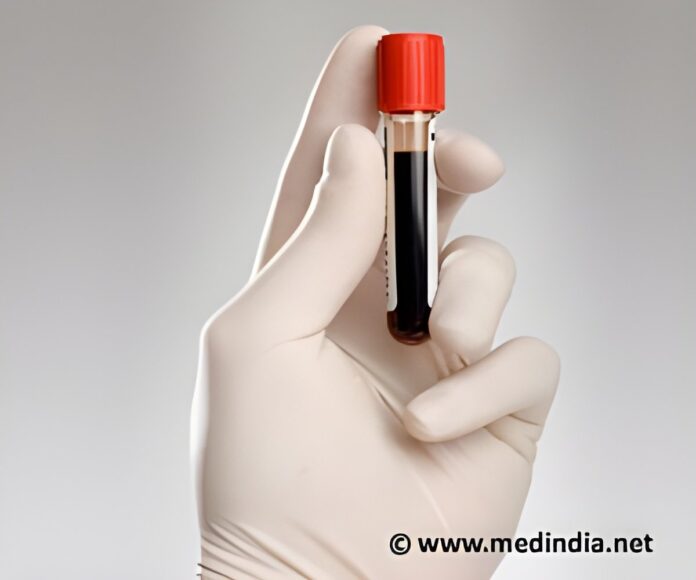New method uses blood tests to accurately detect and monitor cancer, enabling early, noninvasive tracking.
A newly developed, error-corrected technique for detecting cancer through blood samples has proven to be significantly more sensitive and accurate than previous approaches, according to researchers from Weill Cornell Medicine and the New York Genome Center. Based on whole-genome DNA sequencing, the method shows promise not only for tracking disease progression after treatment but also as a major step toward routine blood test-based screening for early cancer detection. ()
In the study, published in Nature Methods, the researchers benchmarked the cancer-detection performance of a new commercial sequencing platform from Ultima Genomics. They demonstrated that a low-cost platform such as this one enables a very high “depth” of coverage—a measure of the sequencing data quality—allowing investigators to detect extremely low concentrations of circulating tumor DNA. Adding an error-correcting method greatly improved the accuracy of the technique.
“We’re now entering an era of low-cost DNA sequencing, and in this study, we took advantage of that to apply whole-genome sequencing techniques that in the past would have been considered wildly impractical,” said senior author Dr. Dan Landau, the Bibliowicz Family Professor of Medicine, and a member of the Englander Institute for Precision Medicine and the Sandra and Edward Meyer Cancer Center at Weill Cornell Medicine, and a core faculty member of the New York Genome Center.
Affordable Sequencing Enables Highly Accurate Cancer Detection
However, sensitively and accurately identifying the mutational signatures of cancer, just from tiny concentrations of tumor DNA in blood samples, has involved major challenges. The Landau laboratory for most of the past decade has been working to overcome these challenges using methods based on whole-genome sequencing—not just targeted sequencing of stretches of DNA where mutations are expected. In a study published last year, they showed that they could reliably detect advanced melanoma and lung cancer from patient blood samples, even without access to sequence data from tumor samples.
In the new study, they took their approach a step further. First, they showed that the low cost of a new sequencing platform enables a depth of whole-genome sequencing that would have been prohibitively expensive with older technology. Using that platform alone, and having the known mutational patterns in patient tumors as a guide, they were able to detect tumor DNA in patient blood samples at concentrations in the part per million range. All samples in the study were collected after obtaining informed consent from the patients.
Next, the team enhanced the accuracy of this approach with an error-correction method that makes use of the redundant information in natural two-stranded DNA. They showed that the combined technique has extremely low error rates, making it feasible in principle to use on blood samples without also needing access to patient tumors.
Collaborating with other research teams, the researchers demonstrated the potential of this high-sensitivity, low-error approach by using it to detect and assess very low cancer levels in patients with bladder cancer and melanoma from blood samples alone.
“This collaboration allowed us to analyze circulating tumor DNA from patients with bladder cancer and identify the distinct mutational signatures that my lab has extensively studied,” said Dr. Bishoy M. Faltas, chief research officer of the Englander Institute for Precision Medicine and associate professor of medicine and of cell and developmental biology at Weill Cornell Medicine. Dr. Faltas is also a urologic oncologist at NewYork-Presbyterian/Weill Cornell Medical Center. “Incorporating these signatures into the analysis significantly increased the sensitivity of circulating tumor DNA detection.”
“We were able, for example, to see increases in circulating tumor DNA levels after treatment in patients with cancers that progressed or recurred, and declines in those levels in patients whose cancers had full or partial responses,” said first author Dr. Alexandre Cheng, a postdoctoral researcher in the Landau laboratory during the study.
“These results allow us to think about a future in which we can detect and track cancer from blood tests alone,” said Dr. Landau, who is also an oncologist at NewYork-Presbyterian/Weill Cornell Medical Center.
Reference:
- Error-corrected flow-based sequencing at whole-genome scale and its application to circulating cell-free DNA profiling – (https://www.nature.com/articles/s41592-025-02648-9)
Source-Eurekalert


